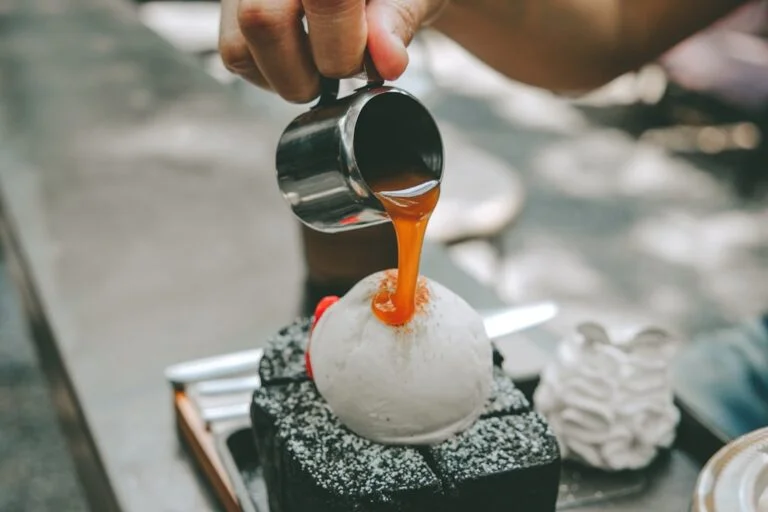Personal grooming often involves the use of cologne to enhance one’s scent. However, not all colognes are safe for use, and some may pose health risks. This article will discuss the five worst colognes to avoid, the potential dangers of synthetic fragrances, and methods for identifying harmful ingredients in cologne formulations.
Additionally, it will provide information on safer alternatives and resources for finding natural, non-toxic options. Colognes are frequently marketed as products that can boost attractiveness and self-confidence. However, many consumers are unaware of the potential health risks associated with certain fragrances.
Synthetic fragrances, in particular, may contain a range of chemicals that can negatively impact health. By understanding these risks and learning to identify harmful ingredients, individuals can make more informed decisions about the products they apply to their bodies. Prioritizing health and well-being in personal grooming routines includes being mindful of cologne choices and their potential effects on overall health.
Key Takeaways
- Synthetic fragrances in colognes can pose health risks such as allergies, respiratory issues, and hormone disruption.
- The top 5 worst colognes to avoid include those containing harmful ingredients like phthalates, parabens, and synthetic musks.
- Look out for harmful ingredients in colognes such as diethyl phthalate, benzyl salicylate, and synthetic musks like galaxolide and tonalide.
- Consider natural and safe alternatives to toxic colognes such as essential oil-based fragrances or colognes made with natural ingredients.
- Making informed choices for your health means being aware of the potential dangers of synthetic fragrances and choosing safer options for personal care products.
The Dangers of Synthetic Fragrances
Health Risks Associated with Synthetic Fragrances
Synthetic fragrances are widely used in colognes and other personal care products, but they can pose significant risks to our health. Many synthetic fragrances contain phthalates, which are chemicals that are used to make fragrances last longer. However, phthalates have been linked to a variety of health issues, including hormone disruption, reproductive problems, and even an increased risk of certain cancers.
Other Harmful Chemicals in Synthetic Fragrances
In addition to phthalates, synthetic fragrances can also contain other harmful chemicals such as parabens, which have been linked to hormone disruption and skin irritation. Furthermore, synthetic fragrances can also trigger allergic reactions in some individuals, leading to symptoms such as headaches, dizziness, and respiratory issues. This is particularly concerning for those with asthma or other respiratory conditions.
The Environmental Impact of Synthetic Fragrances
Additionally, the chemicals in synthetic fragrances can also have negative effects on the environment, contributing to air and water pollution. By understanding the dangers of synthetic fragrances, we can make more informed choices about the colognes and personal care products we use, prioritizing our health and the well-being of the planet.
The Top 5 Worst Colognes to Avoid

1. Axe Body Spray: This popular body spray is known for its strong and overpowering scent, but it also contains a variety of harmful chemicals such as phthalates and synthetic musks. These chemicals have been linked to hormone disruption and reproductive issues.
2. Calvin Klein Obsession for Men: Despite its popularity, this cologne contains a high concentration of synthetic musks, which have been linked to hormone disruption and environmental pollution. It also contains potential allergens such as oakmoss and citrus oils.
3. Old Spice: While this classic brand may be a favorite for many, it contains a variety of harmful chemicals such as parabens and synthetic musks. These chemicals can have negative effects on both our health and the environment.
4. Dolce & Gabbana Light Blue: This popular fragrance contains a variety of potential allergens such as citrus oils and synthetic musks. It also contains potential hormone disruptors such as phthalates.
5. Giorgio Armani Acqua Di Gio: Despite its fresh and aquatic scent, this cologne contains potential allergens such as citrus oils and potential hormone disruptors such as phthalates. It also contains synthetic musks, which can have negative effects on our health and the environment.
How to Identify Harmful Ingredients in Colognes
| Ingredient | Potential Harm |
|---|---|
| Parabens | Linked to hormone disruption |
| Phthalates | Linked to reproductive issues |
| Synthetic musks | Accumulate in the body and environment |
| Formaldehyde | Linked to cancer and respiratory issues |
| Alcohol | Dries out the skin and can cause irritation |
When it comes to identifying harmful ingredients in colognes, it’s important to be mindful of the labels and do some research on the specific chemicals used in the fragrance. Some common harmful ingredients to look out for include phthalates, parabens, synthetic musks, and potential allergens such as citrus oils and oakmoss. These chemicals have been linked to a variety of health issues, including hormone disruption, reproductive problems, allergic reactions, and environmental pollution.
To identify these harmful ingredients, it’s important to carefully read the ingredient list on the cologne packaging. Look for terms such as “fragrance,” “parfum,” or “perfume,” as these can indicate the presence of synthetic fragrances. Additionally, be on the lookout for specific chemicals such as phthalates and parabens, which are often used in fragrances to enhance their longevity.
By being mindful of these harmful ingredients and doing some research on the specific chemicals used in colognes, we can make more informed choices about the products we use on our bodies.
Alternatives to Toxic Colognes
Fortunately, there are plenty of alternatives to toxic colognes that are safe for both our health and the environment. One option is to choose natural and organic colognes that are made with plant-based ingredients and essential oils. These natural fragrances are free from harmful chemicals such as phthalates and parabens, making them a safer choice for those looking to avoid synthetic fragrances.
Another alternative is to opt for fragrance-free or unscented products, particularly for those with sensitive skin or respiratory conditions. These products are free from synthetic fragrances and potential allergens, reducing the risk of allergic reactions and other adverse effects. Additionally, some individuals may choose to create their own natural fragrances using essential oils and other natural ingredients, allowing them to customize their scent while avoiding harmful chemicals.
By choosing these alternatives to toxic colognes, we can prioritize our health and well-being while still enjoying pleasant scents in our daily routine. It’s important to be mindful of the products we use on our bodies and make informed choices that align with our values and priorities.
Making Informed Choices for Your Health

Protecting Our Health and Well-being
In conclusion, it’s essential to be mindful of the colognes we use and prioritize our health when it comes to personal grooming. By understanding the dangers of synthetic fragrances and learning how to identify harmful ingredients in colognes, we can make more informed choices about the products we use on our bodies.
Making Informed Choices
Ultimately, making informed choices about the products we use is essential for prioritizing our health and well-being. By being mindful of the colognes we choose to use and opting for natural and organic options, we can reduce our exposure to harmful chemicals and minimize the risks associated with synthetic fragrances.
A Healthier Alternative
Additionally, by choosing alternatives to toxic colognes that are safe for both our health and the environment, we can enjoy pleasant scents in our daily routine without compromising our well-being.
Resources for Finding Safe and Natural Colognes
For those looking for safe and natural colognes, there are plenty of resources available to help you find the right products for your needs. Many natural beauty stores and online retailers offer a wide selection of natural and organic colognes made with plant-based ingredients and essential oils. These retailers often provide detailed information about the ingredients used in their products, allowing you to make more informed choices about the colognes you choose to use.
Additionally, there are plenty of online resources and communities dedicated to natural beauty and personal care products that can provide recommendations for safe and natural colognes. Websites, forums, and social media groups focused on natural beauty often feature discussions about safe fragrance options and provide valuable insights from individuals who have experience with natural colognes. By utilizing these resources and seeking out information from trusted sources, you can find safe and natural colognes that align with your values and priorities.
Prioritizing your health when it comes to personal grooming is essential, and by making informed choices about the products you use, you can enjoy pleasant scents in your daily routine without compromising your well-being.
If you’re interested in learning more about the world of fragrances, you might want to check out this article on the tragic loss of actor Christian Oliver and his daughters. It’s a heartbreaking story that reminds us of the importance of cherishing our loved ones. Read more here.
FAQs
What are some of the worst colognes on the market?
Some of the worst colognes on the market are those with overpowering, synthetic, or unpleasant scents that are often described as too strong, cloying, or offensive.
What are some common characteristics of the worst colognes?
Common characteristics of the worst colognes include poor longevity, lack of complexity in the scent, and a cheap or artificial smell. They may also cause allergic reactions or headaches in some individuals.
How can I identify a bad cologne?
You can identify a bad cologne by its overpowering or unpleasant scent, lack of sophistication, and poor quality ingredients. Additionally, bad colognes may have negative reviews or a reputation for being disliked by many people.
What should I look for in a good cologne?
A good cologne should have a pleasant and well-balanced scent, good longevity, and be made with high-quality ingredients. It should also complement your personal style and be appropriate for the occasion.




















+ There are no comments
Add yours